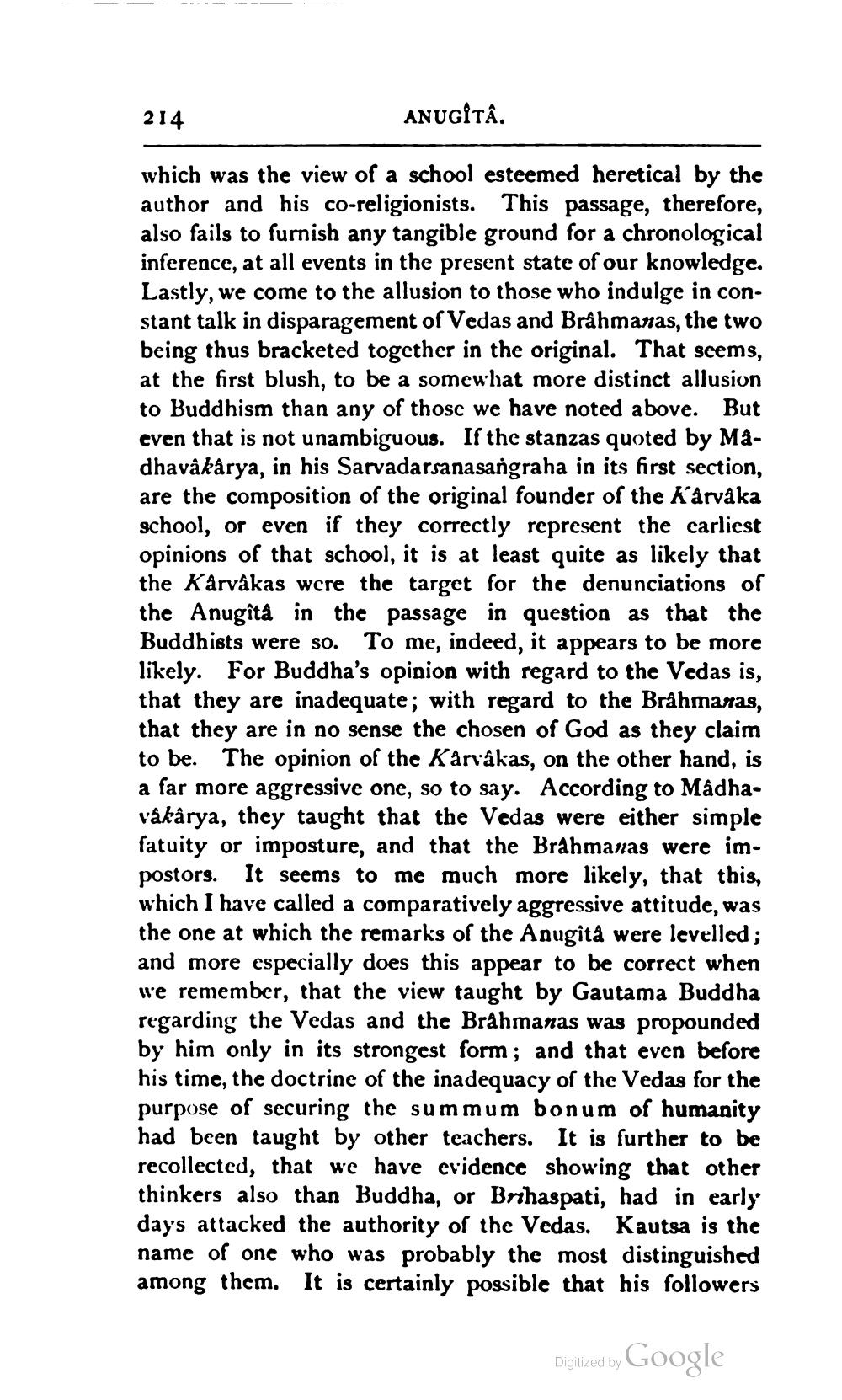________________
214
ANUGITA.
which was the view of a school esteemed heretical by the author and his co-religionists. This passage, therefore, also fails to furnish any tangible ground for a chronological inference, at all events in the present state of our knowledge. Lastly, we come to the allusion to those who indulge in constant talk in disparagement of Vedas and Brahmanas, the two being thus bracketed together in the original. That seems, at the first blush, to be a somewhat more distinct allusion to Buddhism than any of those we have noted above. But even that is not unambiguous. If the stanzas quoted by Madhavâkârya, in his Sarvadarsanasangraha in its first section, are the composition of the original founder of the Karvaka school, or even if they correctly represent the carliest opinions of that school, it is at least quite as likely that the Kårvâkas were the target for the denunciations of the Anugîtà in the passage in question as that the Buddhists were so. To me, indeed, it appears to be more likely. For Buddha's opinion with regard to the Vedas is, that they are inadequate; with regard to the Brahmanas, that they are in no sense the chosen of God as they claim to be. The opinion of the Karvakas, on the other hand, is a far more aggressive one, so to say. According to Madha. vâkârya, they taught that the Vedas were either simple fatuity or imposture, and that the Brahmanas were impostors. It seems to me much more likely, that this, which I have called a comparatively aggressive attitude, was the one at which the remarks of the Anugità were levelled; and more especially does this appear to be correct when we remember, that the view taught by Gautama Buddha regarding the Vedas and the Brahmanas was propounded by him only in its strongest form; and that even before his time, the doctrine of the inadequacy of the Vedas for the purpose of securing the summum bonum of humanity had been taught by other teachers. It is further to be recollected, that we have evidence showing that other thinkers also than Buddha, or Brihaspati, had in early days attacked the authority of the Vedas. Kautsa is the name of one who was probably the most distinguished among them. It is certainly possible that his followers
Digitized by Google




